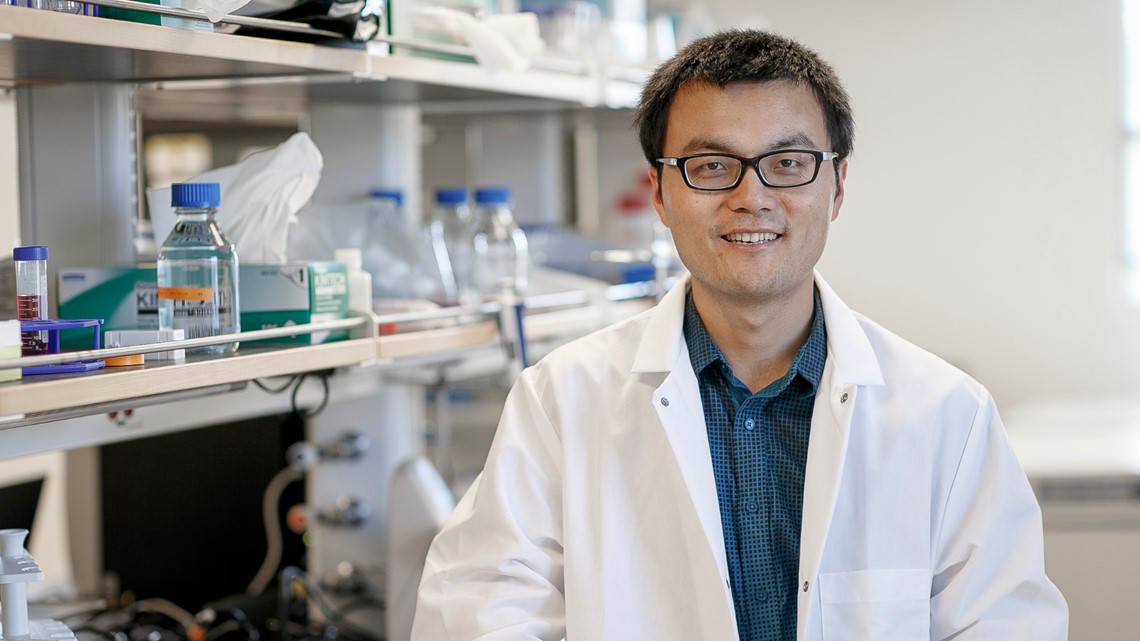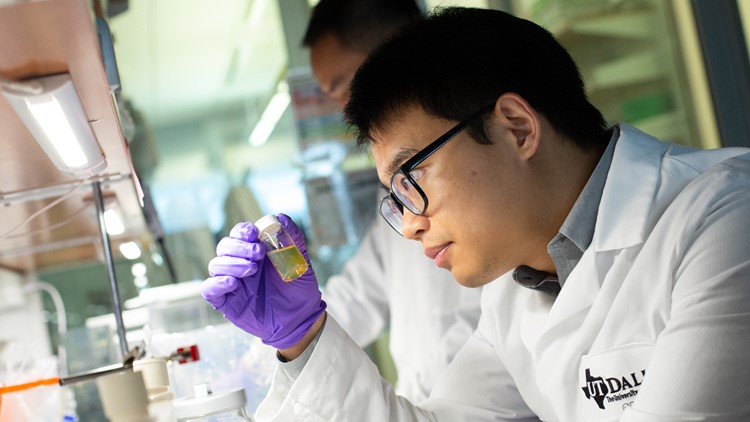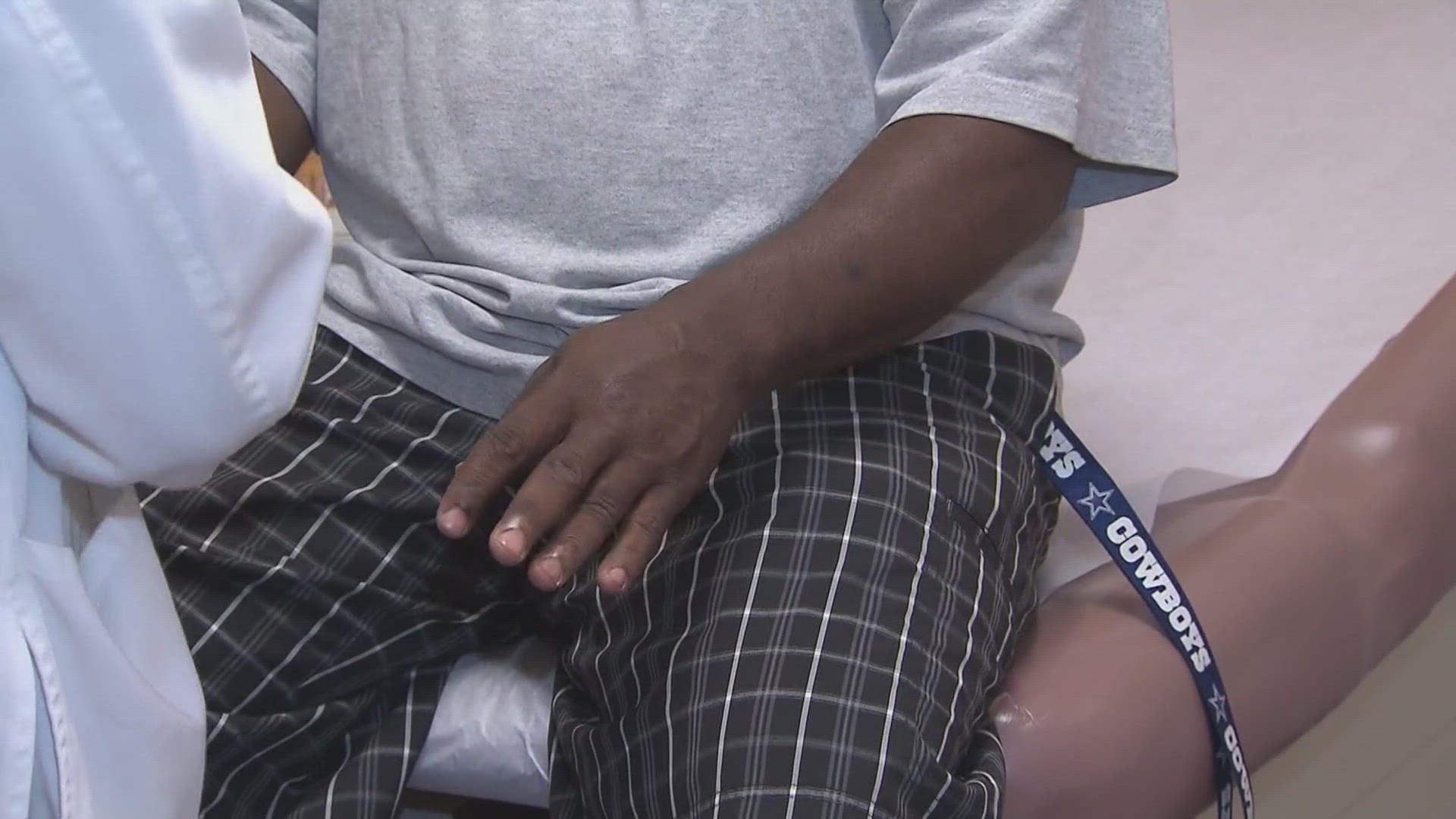As the COVID-19 pandemic has gripped the world, the importance of accurate and quick disease testing has become much more apparent.
It's a revelation that comes at the same time researchers at UT Dallas are close to finishing a years-long project to develop rapid and sensitive diagnostic tests for respiratory viruses like the novel coronavirus.
Bringing that technology to the market would make getting test results fast, easy and cheaper than current methods, explains Dr. Zhenpeng Qin, an assistant professor of mechanical engineering at UT Dallas. He's leading the team working on the project.
And they're using gold to do it.
Qin explained the new method like this:
- When a patient goes to a clinic or testing site, a healthcare worker would take a swab, or specimen, from them.
- They would then mix it with a gold nanoparticle reagent that will change colors if the virus is present.
- A smartphone can then be used by providers to detect the color change and determine if the patient is infected or not.
"The goal here we're looking at is to be able to detect this [quickly]", he said. "For example, if you go to a caregiver, you can get the results before you leave the clinic."
The innovation with the gold nanoparticles ensures that even though the test is rapid, results are still highly accurate, Qin said.
Current tests for respiratory viruses struggle to do both. Some tests that detect the gene of viruses are very accurate, but can take days to process before getting a result and require a clinical lab setting to do so. Other kinds of tests can provide rapid results, "but the downside is it's not very sensitive," Qin explained.


For a test to do both can be very influential in the fight against a disease, especially when dealing with a viral infectious disease like COVID-19 or the flu.
"It's really important to know whether someone is infected, whether they're symptomatic or asymptomatic...so you can tell the patient 'Okay, you know even if you're not symptomatic, stay at home,'" Qin said. "If we don't know how many people get infected, there's a lot of people walking around without symptoms but carrying the virus."
That's why the diagnostic test the UT Dallas team is working on could be a disrupter: it would be both rapid and sensitive.
Qin said it's too early to know exactly when this test will go to market, but they hope to have it ready within the year, assuming they can get all the parts together.
"It's not there yet, but we're pushing," he said. "We're actively looking for opportunities to get the technology out of the lab to the real world, especially in the current coronavirus pandemic."
The research took more than five years to develop, the entire time Qin has been working at UT Dallas. The timing, though, was not something he would have imagined.
"It's interesting. The risk of a pandemic is always there, right; I think it's a matter of time," Qin explained. "We've seen different types of viruses that have come up in the last 5, 10, 15 years, with SARs, Ebola and others."
They started the research without a specific outbreak in mind, Qin said, and while the test could be used for the novel coronavirus, he hopes to see it used for other diseases as well as time goes on.
The team is actively looking for entrepreneurs or investors to bring the tests to market and are asking those Mark Cuban-types to get in touch with them if they're interested.
"We can only do this together," Qin said.
More on WFAA:
- Airway experts' work puts them inches from where virus lives
- MAP: These are the confirmed COVID-19 cases in the Dallas-Fort Worth area
- Oxford COVID-19 vaccine reportedly shows success protecting monkeys from virus
- 'At least a week, if not two': Some in medical community wonder if more time would've helped before relaxing COVID-19 restrictions



